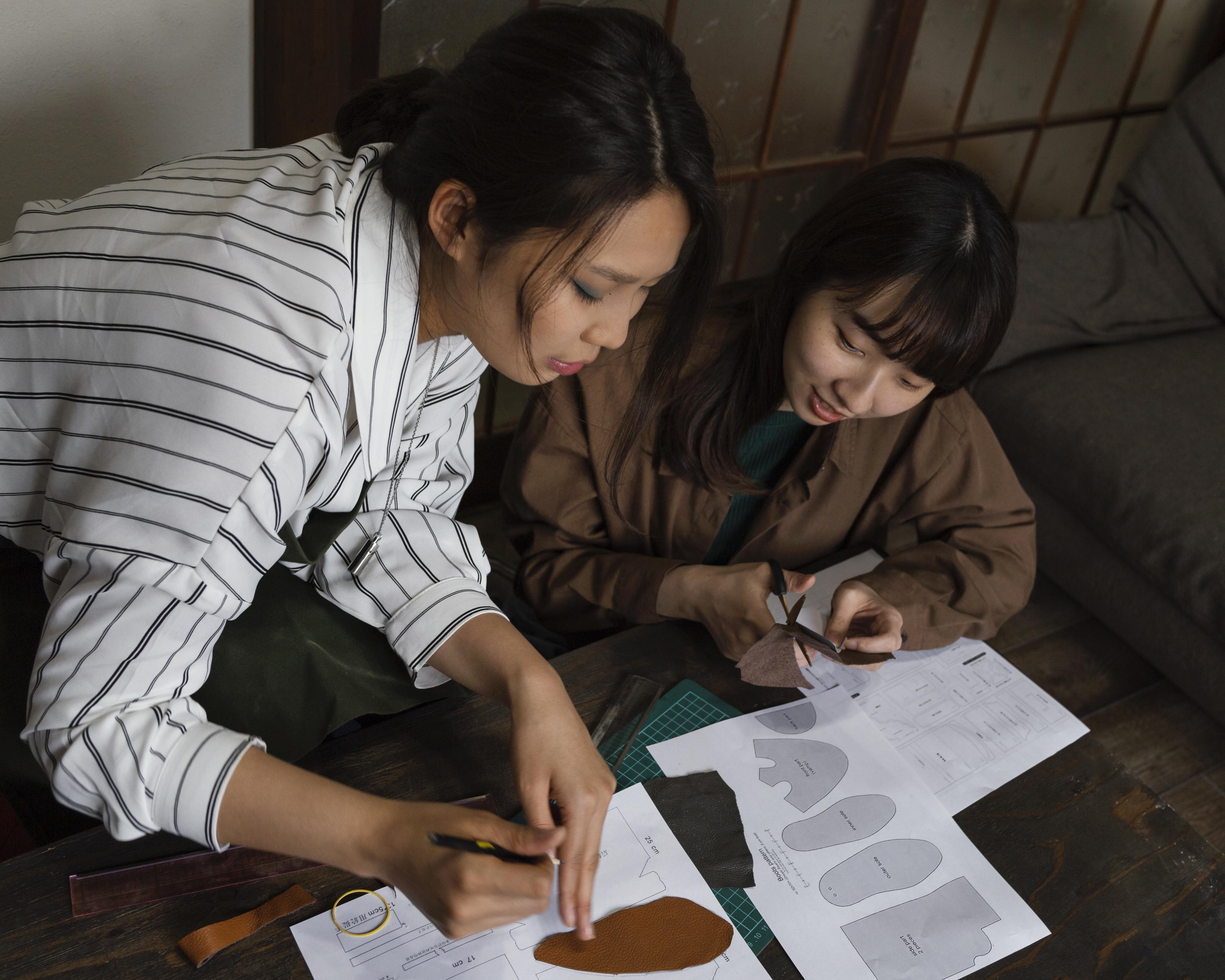Unrealistic Expectations from Your
Partner Can End Your Relationship

Maintaining a
healthy and lasting relationship requires effort, compromise, and understanding
from both partners. Unfortunately, unrealistic expectations and constant stress
can jeopardize even the strongest of bonds. In this article, we will explore
why it is crucial to manage expectations and avoid placing unnecessary pressure
on your partner. By offering practical advice and insights, we aim to help
individuals experiencing relationship struggles to nurture their connections
and foster a more fulfilling partnership.
The Importance of Healthy Expectations
Healthy expectations form the foundation of any successful relationship. They allow individuals to express their needs and desires while respecting their partner's boundaries. Unrealistic expectations, on the other hand, often lead to disappointment, frustration, and ultimately, the erosion of trust. By maintaining realistic expectations, you can create an open and communicative space within your relationship.
Identifying Unrealistic Expectations
To protect your relationship, it is essential to recognize and address any unrealistic expectations you may have. These expectations can manifest in various ways, such as expecting your partner to fulfill all your emotional needs or achieve unattainable goals. Taking the time to reflect on your expectations will help you develop a healthier perspective and foster greater understanding between you and your partner.
The Effects of Stress on a Relationship
Stress can not only impact an individual's mental and physical well-being but also strain their relationships. When one partner constantly stresses the other, it creates an environment of tension, resentment, and dissatisfaction. It is crucial to acknowledge the role stress plays in relationships and take proactive steps to manage and alleviate it.
Communicating Openly and Honestly
Effective communication is the backbone of any successful relationship. To avoid stressing your partner, it is essential to establish open and honest lines of communication. Encourage dialogue, actively listen to your partner's concerns, and express yourself in a respectful and non-confrontational manner. This approach fosters understanding and allows both partners to work through challenges together.
Practicing Empathy and Understanding
Empathy is a powerful tool in maintaining strong relationships. Putting yourself in your partner's shoes and seeking to understand their perspective can prevent unrealistic expectations and unnecessary stress. By displaying empathy, you demonstrate your commitment to supporting and nurturing your relationship, ultimately promoting harmony and connection.
Cultivating Realistic Expectations
To protect your relationship from unrealistic expectations, it is important to set realistic ones instead. Consider both your own and your partner's strengths, weaknesses, and personal boundaries. Embrace compromise and understand that no relationship is perfect. By cultivating realistic expectations, you create a foundation for long-term happiness and fulfillment.
Focusing on Appreciation and Gratitude
Expressing appreciation and gratitude is a powerful way to nourish your relationship. Acknowledging your partner's efforts, recognizing their contributions, and showing gratitude for their presence in your life can strengthen your bond. It also helps to reduce stress and unrealistic expectations, fostering a supportive and loving environment.
Building Trust
Trust is the cornerstone of any successful relationship. By cultivating trust, you create a foundation of security and emotional stability. Trusting your partner allows you to let go of unrealistic expectations and avoid stressing your relationship. Communicate openly, follow through on commitments, and respect boundaries to establish and maintain trust between you and your partner.
Prioritizing Self-Care
Personal well-being directly impacts the health of a relationship. Prioritize self-care to ensure you have the emotional resilience to navigate challenges without overwhelming your partner. Engage in activities that promote stress reduction, such as exercise, mindfulness, or spending time with friends. Taking care of yourself allows you to be a supportive and balanced partner.
Seeking Professional Help
If you find that the struggles and stress in your relationship persist despite your efforts, do not hesitate to seek professional help. Relationship therapists can provide valuable guidance and tools to address underlying issues and restore harmony. Seeking professional assistance demonstrates a commitment to your relationship's well-being and shows a willingness to invest in its success.
Accepting Imperfections
No relationship is flawless, and it is important to accept both your own and your partner's imperfections. Unrealistic expectations often stem from a desire for perfection, which is unattainable. Embrace the beauty of imperfection and celebrate the uniqueness of your relationship. By accepting imperfections, you free yourself from unnecessary stress and create a space for growth and understanding.
Creating Shared Goals
Setting shared goals can bring you and your partner closer together and help manage expectations. Discuss your aspirations, dreams, and desires, and work collaboratively to create a roadmap for your future. By aligning your expectations and working towards common objectives, you strengthen your relationship's foundation and foster a sense of unity.
Practicing Patience and Understanding
Relationships require patience and understanding. Recognize that both you and your partner are on your own individual journeys, with different strengths, weaknesses, and timelines. Be patient with one another's growth and support each other along the way. This approach can help alleviate stress and promote a more harmonious relationship.
Embracing Emotional Vulnerability
Emotional vulnerability is fundamental to building intimate connections. By allowing yourself to be vulnerable with your partner, you create space for trust, empathy, and support. Avoid the trap of pretending to be invincible or suppressing your emotions. Embracing vulnerability encourages authenticity, deepens your bond, and fosters a stronger, stress-free relationship.
Balancing Independence and Togetherness
Maintaining a healthy balance between independence and togetherness is crucial in avoiding stress and unrealistic expectations. Encourage each other's personal growth, allow space for individual pursuits, and respect each other's boundaries. By embracing independence alongside togetherness, you create a foundation of mutual respect, trust, and understanding.
Nurturing Intimacy
Intimacy goes beyond physical connection and plays a vital role in maintaining a healthy relationship. Nurture intimacy by cultivating emotional closeness, expressing affection, and engaging in activities that foster connection. Prioritizing intimacy allows for a deeper understanding and appreciation of one another, mitigating stress and unrealistic expectations.
Reflecting and Learning from Conflict
Conflict is an inevitable part of any relationship. Instead of viewing it as a negative, use conflict as an opportunity for growth and understanding. Reflect on past conflicts, identify patterns, and learn from them. By actively addressing and resolving conflicts in a healthy manner, you strengthen your bond and prevent stress and unrealistic expectations from damaging your relationship.
Cultivating a Supportive Network
Maintaining a supportive network of friends and family can provide additional resources and perspectives on your relationship. Seek guidance, advice, and emotional support from trusted individuals who have your best interests at heart. A strong support system can offer guidance during challenging times and help you navigate stress and unrealistic expectations in your relationship.
In conclusion, naturally, people in a relationship can maintain it if they don't have unrealistic expectations and not stressing out their partners. By understanding the importance of healthy expectations, managing stress, and nurturing connection, individuals can protect their relationships from unnecessary strain. Embrace realistic expectations, cultivate open communication, and prioritize self-care to build a strong foundation. Remember, by prioritizing the well-being of both yourself and your partner, you can foster a flourishing and lasting relationship.
Check This Out!
|
| |
|
| |
|
|











